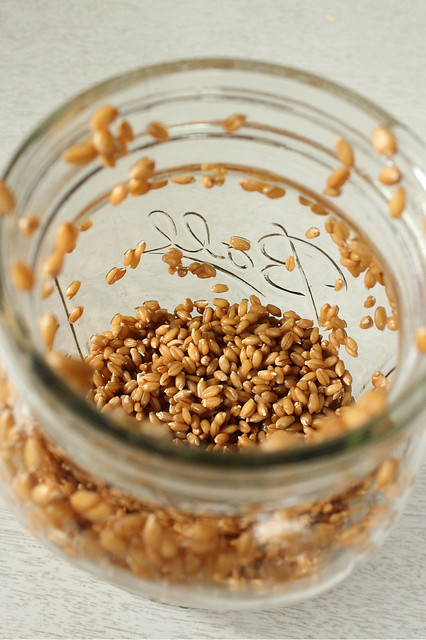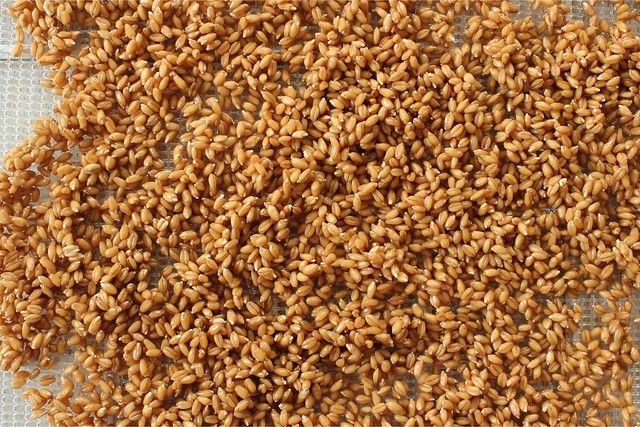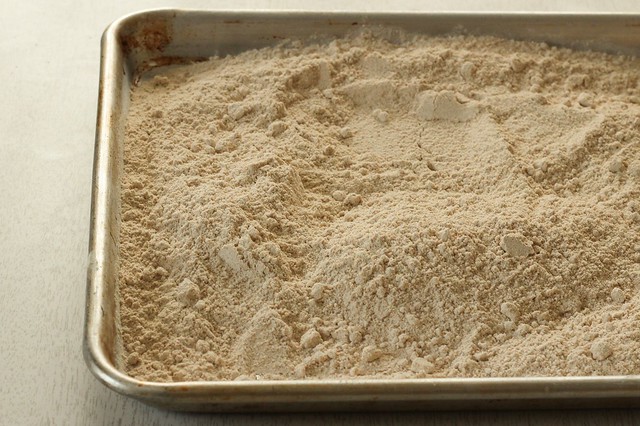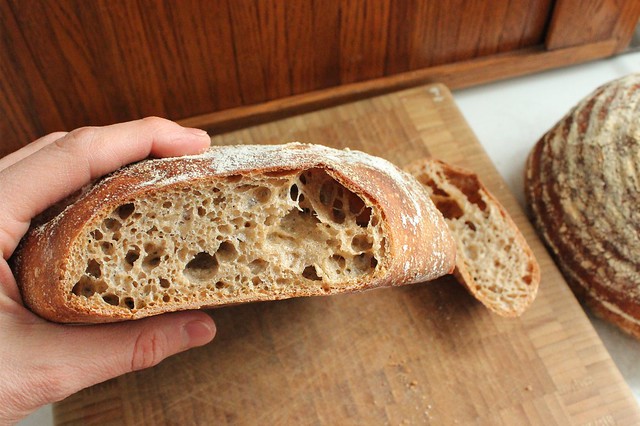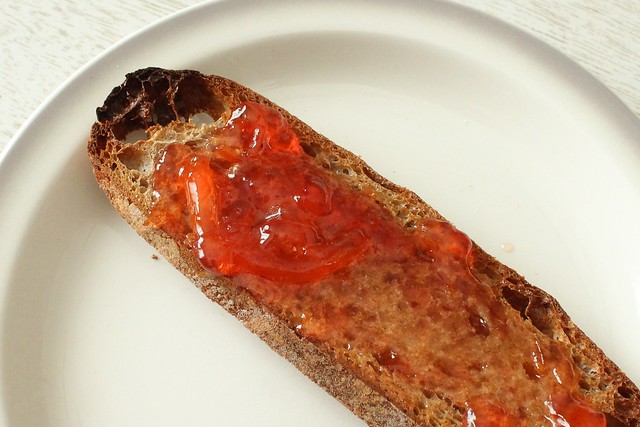Decades, Sprouted Wheat.
In two weeks, I'll have been married for a decade. A decade. That frame of time seems both long and short as I look back over it. Time in general has started to feel completely relative in nature: in perpetual fast forward as I look at my boys growing bodies day by day, in slow motion as I watch things in the kitchen sprout and grow, in stubborn reverse as I look back over the things that might have been or could have been if events hadn't played out the way they did.
A decade, almost all of it full of slow food and homemaking as a profession. I don't know many who do their taxes and put "homemaker" down in the box - every year I think of that. The term, also in print on my boys' birth certificates, seems antiquated and humbling and yet it is the thing I am most proud of. I never dreamed I'd even have children let alone have the autonomy to watch them closely every day, hold onto the minutes, the hours, the years and try (at times) to remember to not wish them away. I never knew how happy tending a home full time would make me, and I worry that if I ever had to be doing something else full time it would kill me. I watch over my home, the center of which is (of course) this kitchen, and there is nothing else I'd rather be doing.
Another relationship began 5 years ago, the one involving wild yeast. That relationship parallels the ones with my husband and children in
perplexingly similar ways. Living, breathing, growing, changing, I can't neglect it and I can't ever predict it. Just when I think things are going horribly, out pops a tremendous and amazing reminder that slow and steady wins the race. That glorious things can come from strange circumstance.
In the new batch of cookbooks rented, I've been enjoying Peter Reinhart's Bread Revolution. It focuses on sprouted wheat breads both with conventional yeast and wild yeast and also a host of quick bread and baked good recipes using sprouted grain flours. When I had first sprouted my own wheat a few years back, I couldn't get over the flavor of it - but I did notice the difference in how it baked. Reinhart of course is able to explain this better than I ever could, and leave it to him to come up with a whole book full of recipes highlighting how to use it in the very best way.
Sprouted sourdough almost seems redundant. After all the process of culturing regular flour with the wild yeast innoculant renders the whole loaf already easier to digest, a true whole and fermented food. Before reading about it, I never thought the result would be that much better but boy was I wrong! The flavor is incredible; it's wheaty, earthy, and almost sweet. It makes the best toast I've ever eaten.
Sprouted sourdough almost seems redundant. After all the process of culturing regular flour with the wild yeast innoculant renders the whole loaf already easier to digest, a true whole and fermented food. Before reading about it, I never thought the result would be that much better but boy was I wrong! The flavor is incredible; it's wheaty, earthy, and almost sweet. It makes the best toast I've ever eaten.
The dough seems harder to work with, it's stickier (Reinhart advises oiling your hands, but I just used water and folded the dough in the bowl I mixed in rather than putting it on the counter each time) and more "relaxed" in feel than dough made with regular flour. I didn't pay good attention to the time when I began and had to get up in the night to form my dough into a loaf - and then rather than set more nighttime alarms, I decided to cold proof it in the fridge until morning. All of my variables and I was sure the bread wouldn't be anything to speak of, but like sourdough always does it surprised me with it's wonderfulness.
Click the photo to read the baking notes.
Isn't that always the way? The bread always changes the rules just when you think you know it all. And there is always, always something more to learn. I made this loaf alongside a whiter one, plain sourdough as I'm used to making. The boys all wanted this one before the other and it really was that unique. When toasted, it became brittle and almost graham like. There is just the heel left, and I'm saving it for breakfast tomorrow with more marmalade. I will eat it slowly and plot my next sprouted baking experience.
I still can't decide if I should make another batch of the kumquat & blood orange marmalade...
I seem to save the heels of bread to toast and eat myself, like I save up all the small moments in my day to day family life that one day I'll likely use to comfort and warm myself. In another decade, my oldest boy will likely be out of the house and the growing baby boy will be almost a teenager. I will be greyer and telling more tales of bread, hopefully still learning more and more about it.
